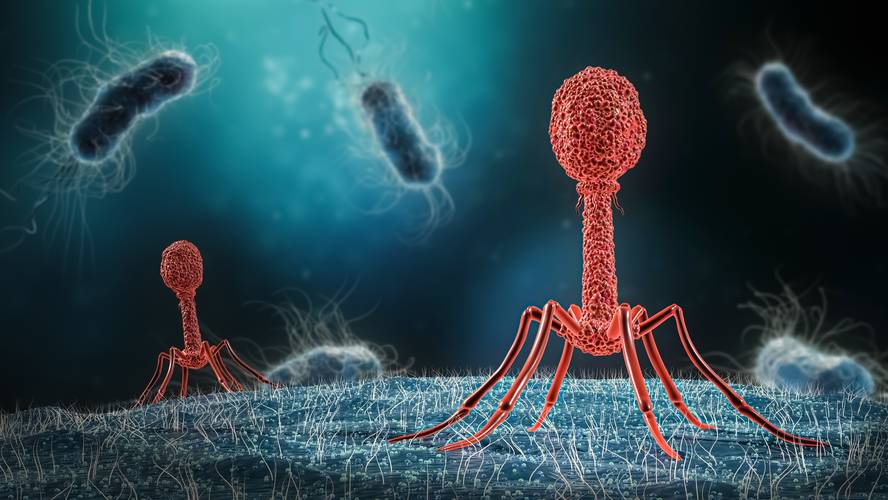Viruses accompany food security
The AZTI research centre is investigating the possibility of using antibacterial viruses to prevent foodborne diseases. One of the biggest advantages is that these viruses only affect one species or bacterial genus and are not harmful to other beneficial bacteria, or to animals and plants.
Although when we hear about viruses, diseases and misfortunes occur to us, viruses are not always enemies. For example, phage can be important allies in taking care of our health.
Phages, or bacteriophages, infect bacteria, so it's easy to figure out why they're interesting to humans. For example, when antibiotics don't work, we can use them to deal with an infection or to prevent food poisoning.
In this second area, research is being carried out precisely at the AZTI research centre of the BRTA alliance. They develop pathogen control tools that spread through food. And among other things, they're doing research with phages. It is precisely the possibility of offering new solutions to pathogens transmitted through food that has increased the investigation of phages in the field of food safety in recent years.
The first step is to find the phages of interest. And to do so, they explore the areas where the bacteria grow that infect and take samples: water, soil, sea, food…
Phages have a very special feature: they're very specific. That is, they only contaminate certain bacteria and do not harm others. This particularity makes it of great interest for its use as a biological tool against the diseases that produce the bacteria, as explained by researcher Amaia Lasagabaster Bilbao: “Each phage can infect a single species of bacteria and at most a single genus. And that's the main advantage of phages. In fact, with the use of phages we can fight a pathogen that generates a problem, but without affecting other beneficial bacteria present in food, animals or the environment.”
AZTI researchers characterize and analyze phages that especially affect three bacterial genera: Campylobacter, vibrio and Listeria. In fact, bacteria from these three genera have a huge impact on our health and in some cases can cause serious problems.
“Campylobacter is today the most common food toxoinfection in Europe and possibly in the world,” explains María Lavilla Martín. “Vibrio is one of the most important bacteria in water and not only affects us, but also the fish in aquaculture, and it is transmitted throughout the entire food chain. And Listeria monocytogenes, although not very common, is one of the most dangerous, because it can cause death.”
Phages are multiplied and purified in the laboratory to complete the collections of phages facing diseases. They're also genetically tested, to make sure that you're only working with phages that kill bacteria of interest.
They provide that the use of disease control strategies based on phages throughout the food production process, both in the primary sector and in livestock and aquaculture, may be possible to control pathogens that may cause problems and to ensure safety in the food processing chain, both in food and on surfaces that may be in contact with food.
On the other hand, phagot-based strategies are only regulated and approved in a few countries of the world. In Europe, not yet. However, researchers see this possibility very close. In fact, they are clear that the use of viruses that infect bacteria can be very interesting to deal with different health problems.
“We like to say they are good viruses because they only infect bacteria and are completely safe for animals, plants and humans,” Lasagabaster said. “The use of phages will be a strategy for the future to deal with many problem bacteria. They will be a powerful alternative to fighting, for example, antibiotic resistance or foodborne diseases.”






